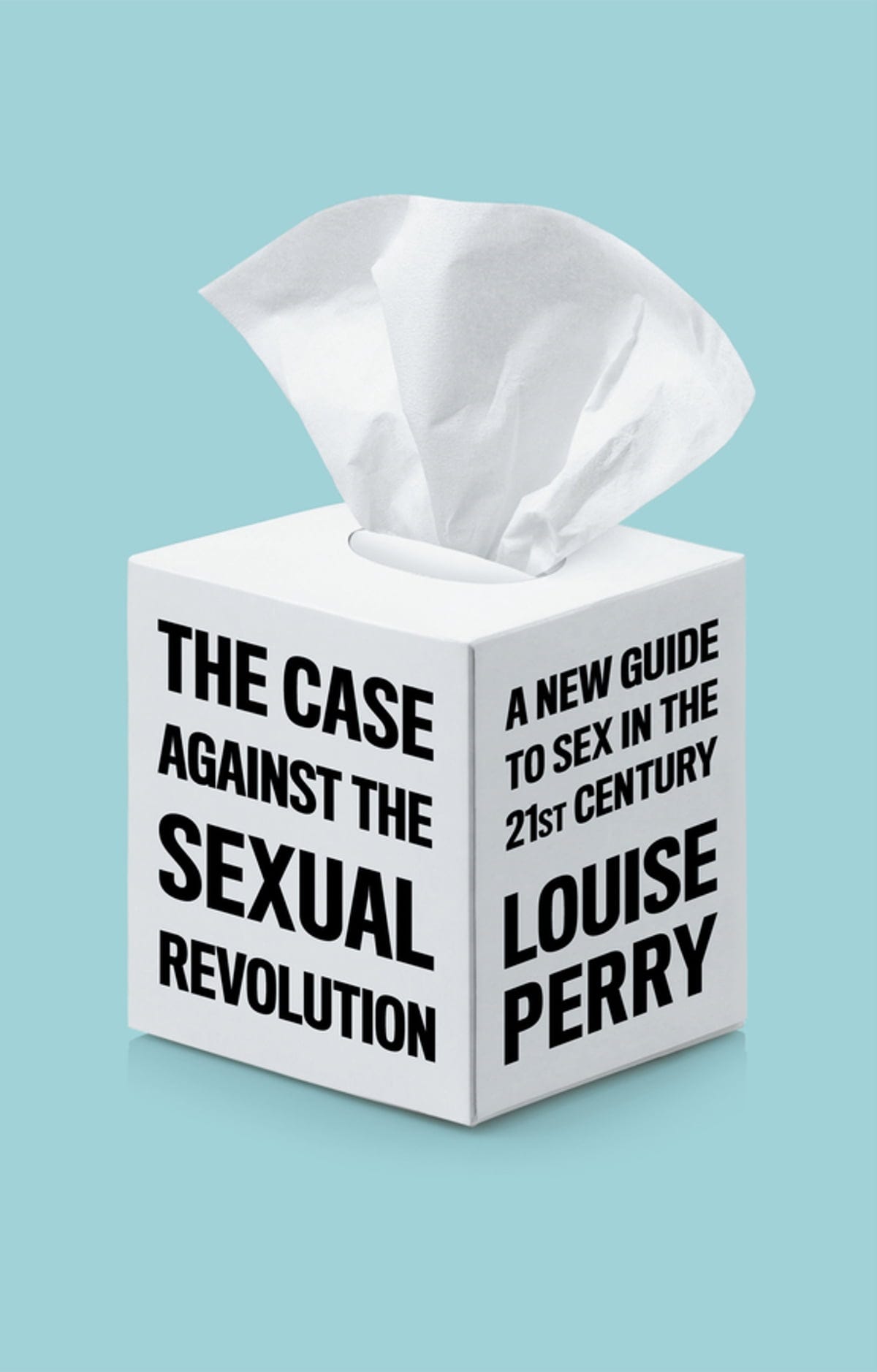Rehabilitating Biological Essentialism
Introducing Holly Lawford-Smith
It's "Featured Authors February," and we're honored to introduce our first new Featured Author: Holly Lawford-Smith.
Holly is an Associate Professor in Political Philosophy at the University of Melbourne, and has written two important books: Sex Matters (2023) and Gender-Critical Feminism (2022), with a third coming out this spring: Is it Wrong to Buy Sex? A Debate (March 2024).
You might remember Holly's previous essays for us, "Was Phyllis Schlafly a Feminist?" and "Feminists Don't Have to Choose Christianity or Paganism."
Here's what she has to say about Fairer Disputations:
"Fairer Disputations has a crucial mission: namely, to defend what they call a 'sex-realist' feminism (and what I would call a 'gender-critical' feminism) against a mainstream feminist discourse utterly overrun by what we might call 'sex-surrealism'—poetic but nonsensical claims such as that sex is a multidimensional space, or a spectrum, or a social construction, or a mere matter of identity.
Still, there's a balance to be achieved between dismissing sex, on the one hand, and overemphasizing sex, on the other, and I hope that one thing I can bring to the discussion is persistence in finding that balance. I love that Fairer Disputations platforms a range of perspectives, and goes to some lengths to ensure that its authors' bolder ideas are robustly interrogated."
We're so excited to feature more of Holly's writing, beginning with today's FD Original, "Rehabilitating Biological Essentialism."
Fairer Disputations
Rehabilitating Biological Essentialism
HOLLY LAWFORD-SMITH
The fact that anyone female is necessarily female (had her parents conceived a child of the opposite sex that child would not have been her; she will remain female throughout her life no matter what she does) makes biology destiny in the first way, the way that death is the destiny of all humans. Your biology determines your future, in the sense that if you are female, then your future is female. But saying that anyone female must bear a child, or must become a wife and homemaker, or must take a job as a kindergarten teacher, makes biology (femaleness) destiny in the second way, the way that a bird “should” fly.
We should reject biological normativity and accept biological determinism. Rejecting biological normativity is more than sufficient to avoid limiting people’s—here women’s—futures. When feminists argue that biology isn’t destiny, they mean that there’s nothing in particular a woman should be or do just because she is female. They don’t mean that males should be able to become female.
This Week's Links:
Aaron Renn writes for the Institute for Family Studies about the problems plaguing young men. He emphasizes that, in addressing these problems, we must be sure to treat the flourishing of men as an end in itself.
Institute for Family Studies
A Mainstream Consensus on the State of Men
AARON M. RENN
The researchers are particularly alarmed that young men are turning against feminism. The number of men agreeing that feminism made America a better place fell by nine percentage points between the 38-45-year-old group (56%) and the 18-23-year-old group (47%). Younger men are also much more worried about being accused of abuse after a sexual encounter—with rates up by about 50% between the older and younger groups; a bit over a third of 18-23-year-olds have this fear. And young men are increasingly putting their trust in online influencers. Perhaps the most eyebrow-raising finding in the report is that more 18-23-year-old men trust Andrew Tate than Joe Biden.
Polyamory is everywhere lately. In his review of Molly Roden Winter's More: A Memoir of an Open Marriage, Tyler Austin Harper points out that polyamory actually made Winter miserable. Polyamory's moment in the sun, he argues, showcases the problems with "therapeutic libertarianism." (Note: contains some explicit language.)
Perhaps polyamory is just another aspect of what Featured Author Mary Harrington calls the "Cyborg Sex Code."
The Atlantic
Polyamory, The Ruling Class's Latest Fad
TYLER AUSTIN HARPER
Despite the book’s slick marketing—which takes great care to cast the author as a “happily married mother”—Molly’s polyamorous journey toward self-actualization does not seem to bring her much happiness. It seems to make her miserable, while taking her attention away from the real issues: a husband who behaves like an asshole, an unbalanced division of household labor, an unorthodox childhood, a desire to please everyone no matter the personal cost. Her attempt at finding a “deeper truth” through sexual enlightenment not only provides little truth or enlightenment; it keeps her from seeing her problems clearly.
In this way, More is a near-perfect time capsule of the banal pleasure-seeking of wealthy, elite culture in the 2020s, and a neat encapsulation of its flaws.
Finally, at Law & Liberty, Brenda Hafera discusses the value of women's work—and draws special attention to our own work at Fairer Disputations.
Law & Liberty
The Conservative Feminist Revolution
BRENDA M. HAFERA
Feminism is continually being redefined, and a group of conservative (and not so traditionally conservative) men and women are now piloting another new approach. Fairer Disputations, part of the Wollstonecraft Project at the Abigail Adams Institute, publishes and compiles work by individuals that do not always agree but defend “a vision of female and male as embodied expressions of human personhood,” and affirm “that men and women are equal in their dignity and their capacity for human excellence, yet distinct in many significant ways, particularly when it comes to sex, pregnancy, childbirth, and care for children.”
Feminism eludes concrete definitions, but questions regarding work often fit under its umbrella, and, fittingly, this is one topic of interest for Fairer Disputations. How can women contribute to a variety of civic and professional roles while respecting the vocation and obligations of motherhood? What is the value and dignity that work affords men and women, and what is its proper place amongst the competing goods available to individuals?
College Reading Groups
This week, we mailed over 90 copies of Featured Author Louise Perry's The Case Against the Sexual Revolution to college students at nine campuses in the US and the UK. We're so excited to launch our Fairer Disputations reading groups.
Interested in starting a new group or joining an existing one? We'd love to have you in future semesters: just email info@fairerdisputations.org.
A Must-Watch
Don't miss Featured Author Louise Perry's most recent Q&A over at Maiden Mother Matriarch: "Why I Still Call Myself a Feminist."
Have Opinions?
Fairer Disputations happily accepts pitches and submissions for publication on our site. Email us at info@fairerdisputations.org.











